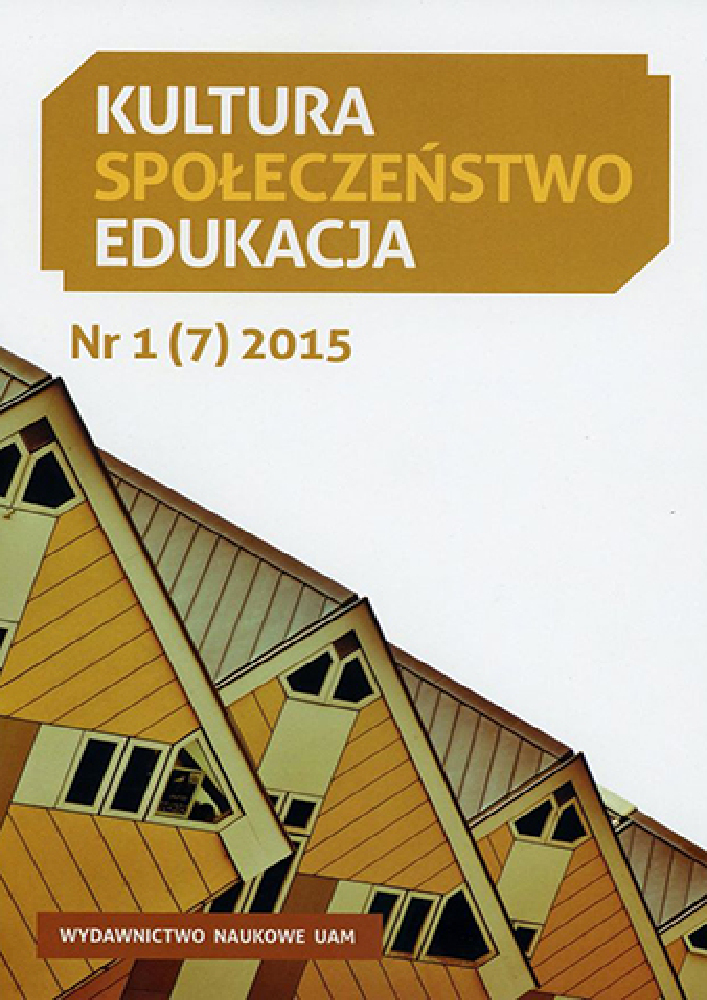Abstract
The article indicates ontological bases which are at the ground of the religious education in Christianity. The touched problem considers issues of Christian anthropology and concerns the category of the person. The definite concept of the man forejudges applied pedagogic manners, that is the way of the approach to the pupil. The characteristics of the person indicates that for purposes of efforts of the man is his salvation, that in Christianity is the achievement of Communion with God, therefore the Christian religious education in its message points soteriological goals and measures. However nowadays, pluralism and multiculturalism and conditions of the public school extort using such type of the religious education which on one hand will accomplish ontological premises of Christian anthropology and on the other hand requirements of the present day.References
Bagrowicz J. (2008). Wychowanie personalistyczne w chrześcijaństwie. [W:] M. Rusiecki (red.). Personalizm polski. Lublin.
Bagrowicz J. (2010). Dialog w edukacji religijnej. „Paedagogia Christiana” nr 2/26.
Bremer J. (2008). Osoba – fikcja czy rzeczywistość? Kraków.
Buxakowski J. (1998). Stwórca i stworzenie. Teologia prawd wiary. T. IV. Pelplin.
Buxakowski J. (2001). Wieczność i człowiek. Eschatologia. Pelpin.
Crosby J.F. (2007). Zarys filozofii osoby. Kraków.
Duma T. (2013). U podstaw tożsamości osobowej człowieka. „Fides et Ratio” nr 4(16).
Gogacz M. (1993). Podstawy wychowania. Niepokalanów.
Granat W. (1985). Personalizm chrześcijański. Teologia osoby ludzkiej. Poznań.
Hempoliński M. (1994). Problematyka ontologii. [W:] M. Hempoliński (red.). Ontologia. Antologia tekstów filozoficznych. Wrocław–Warszawa–Kraków.
Kiereś B. (2007). Kultura chrześcijańska wobec postmodernistycznej ideologii „anty” w pedagogice. [W:] A. Rynio (red.). Wychowanie chrześcijańskie. Między tradycją a współczesnością. Lublin.
Kowalczyk M. (2007). Traktat o stworzeniu. [W:] E. Adamiak, A. Czaja, J. Majewski (red.). Dogmatyka. T. 6. Warszawa.
Krąpiec M.A. (1991). Dzieła. T. 9: Ja-człowiek. Lublin.
Kunowski S. (2004). Podstawy współczesnej pedagogiki. Warszawa.
Marek Z. (2013). Tożsamość pedagogiki religii. „Paedagogia Christiana” nr 1/31.
Michalski J. (2013) W kierunku nowego modelu współczesnej edukacji religijnej. „Paedagogia Christiana” nr 1/31.
Milerski B. (2009). Edukacja religijna w szkole neutralnej światopoglądowo. http://ekumenia.pl/wpcontent/uploads/2014/03/Edukacja-religijna-w-szkole-neutralnej-swiatopogladowo-B.Milerski.pdf (dostęp: 19.02.2015)
Milerski B. (2009). Kształcenie międzykulturowe w szkole z perspektywy pedagogiki religii. http://ekumenia.pl/wp-content/uploads/2014/03/Ksztalcenie-miedzykulturowe-w-szkole-zperspektywy-pedagogiki-religii-B.Milerski.pdf (dostęp: 19.02.2015).
Orłowska B.A. (2012). Edukacja religijna jako podstawa dialogu między kulturami. „Perspectiva. Legnickie Studia Teologiczno-Historyczne” nr 2(21).
Placha J. (2013). Tożsamość osobowa człowieka w ujęciu pedagogiki chrześcijańskiej. „Fides et Ratio” nr 4(16).
Podsiad A., Więckowski Z. (1983). Mały słownik terminów i pojęć filozoficznych. Warszawa.
Ślipko T. (2004) Zarys etyki ogólnej. Kraków.
Vorgrimler H. (2005) Nowy leksykon teologiczny. Warszawa.
Zarzecki L. (2012). Teoretyczne podstawy wychowania. Jelenia Góra.
License
Copyright (c) 2016 Adam Wysocki

This work is licensed under a Creative Commons Attribution-NoDerivatives 4.0 International License.
